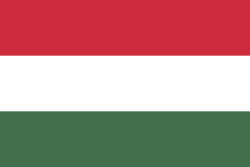Hungary ratifies its membership in the IIB, on its way to become one of the largest shareholders after making its first contribution to the Bank’s capital

After the approval by the IIB Council of Hungary’s request to join the IIB in November last year, the country has now ratified its membership and finalized all the necessary procedures to obtain full voting rights in the Bank. This includes Hungary’s first contribution to the Bank’s paid-in capital, putting its share at EUR 20 million (6.8%). At the same time, Hungary also ratified IIB’s new statutory documents, which have been open for signing since May 2014 and were signed by the majority of member states last year.
Hungary’s request to re-join the Bank after it left in 2000 due to IIB’s inactivity at the time is seen as the utmost testimony to the progress the IIB has made since its re-launch in late 2012 and to the unique bridging role it can play for its varying members, which adds up to the Bank’s peculiarity among other multilateral development institutions.
As stressed by Mihály Varga, Hungary’s Minister of National Economy and the newly appointed Head of the Hungarian delegation in the IIB Council, «we consider the IIB as a modern multilateral development bank and — as a fast growing and nimble institution — it has shown its ability to make significant contribution to the economic development of its member states. Therefore, our country decided to re-enter and to become a part of this relatively small and unparalleled club of countries, in order to explore another channel to promote trade with members of the IIB, both within and outside the EU.»
«In 2014, the International Investment Bank moved from reform towards expansion, significantly increasing its loan portfolio, approving the establishment of the IIB European Regional Office and accepting a new member — Hungary. Our Hungarian partners have proved to be very reliable, and we are confident that they will make a no less important contribution to the Bank’s strategic direction as one of its shareholders. We especially welcome the Hungarian contribution as it in fact brings additional balance to our shareholder structure, in line with the Bank’s new strategy», commented Nikolay Kosov, IIB’s Chairman.
The Hungarian accession is highly significant not only from the point of view of IIB’s expansion, but also from the point of view of the long overdue rebalancing of shares of its members. The first contribution is expected to be followed by another one in 2016, which will bring the country’s share in the paid-in capital to EUR 40 million, further rebalancing shares of other countries — in particular, decreasing the share of IIB’s largest shareholder — Russia — below 50%. Russia’s share has been artificially above its historical level after a number of countries left the IIB during the period of its stagnation.
Hungary’s payment brings IIB’s paid-in capital to EUR 292.6 million, with over 45% belonging to EU member countries — Bulgaria, Czech Republic, Hungary, Romania and Slovakia. At the same time, these countries also have five out of nine votes in the IIB Council, IIB’s highest governing body.
Apart from an additional source of financing, Hungary gains access to a unique platform for supplementary trade and economic integration of countries from three continents, opening far-reaching opportunities for Hungarian businesses in such markets as Mongolia, Vietnam, Russia and other countries. The IIB has already started its activities aimed at Hungary, having supported export from the country earlier this year. Also, in November 2014, in parallel with Hungary’s request to enter the Bank, the Hungarian Eximbank joined the club of export credit agencies created by the IIB in April 2014 under the Multilateral Memorandum on Cooperation.


